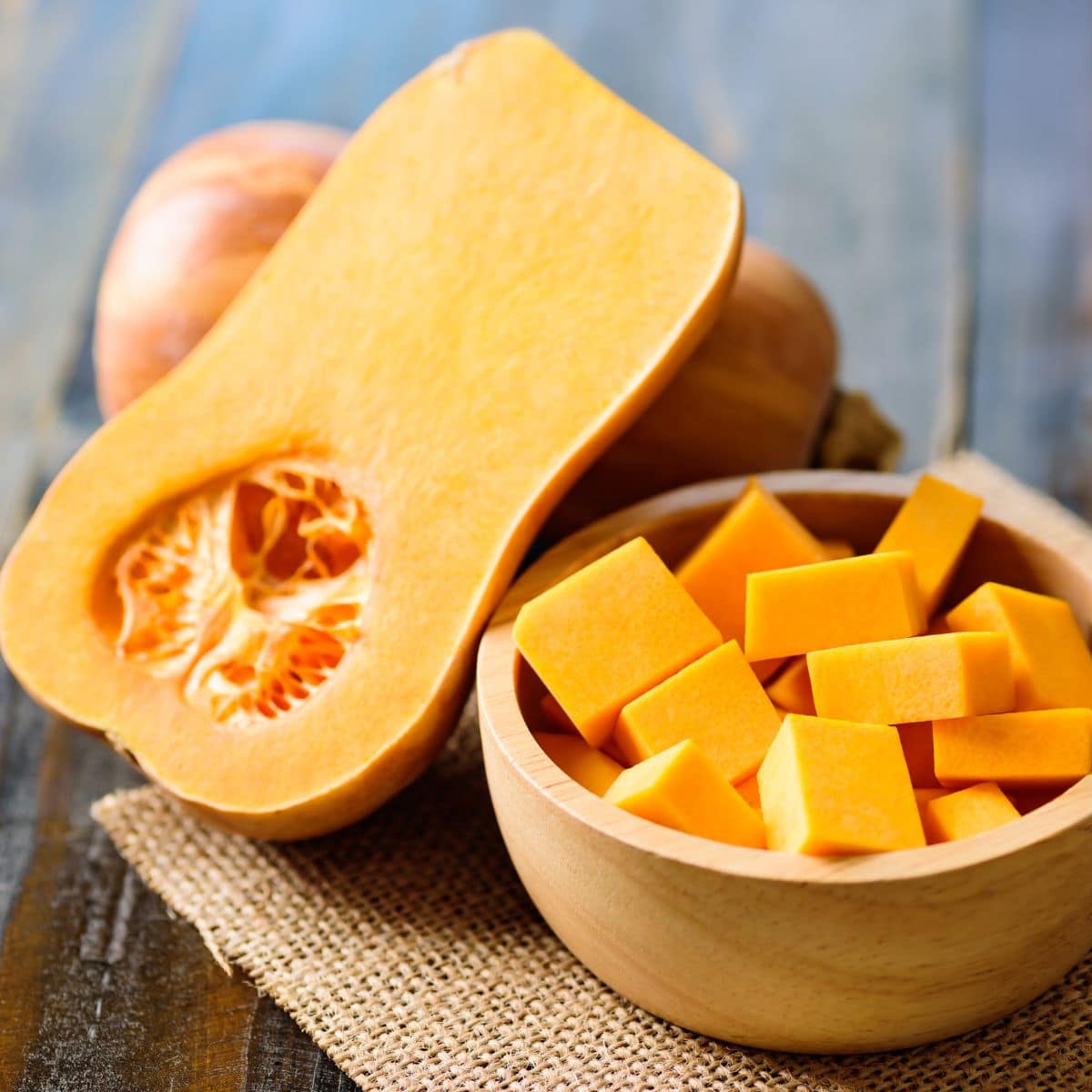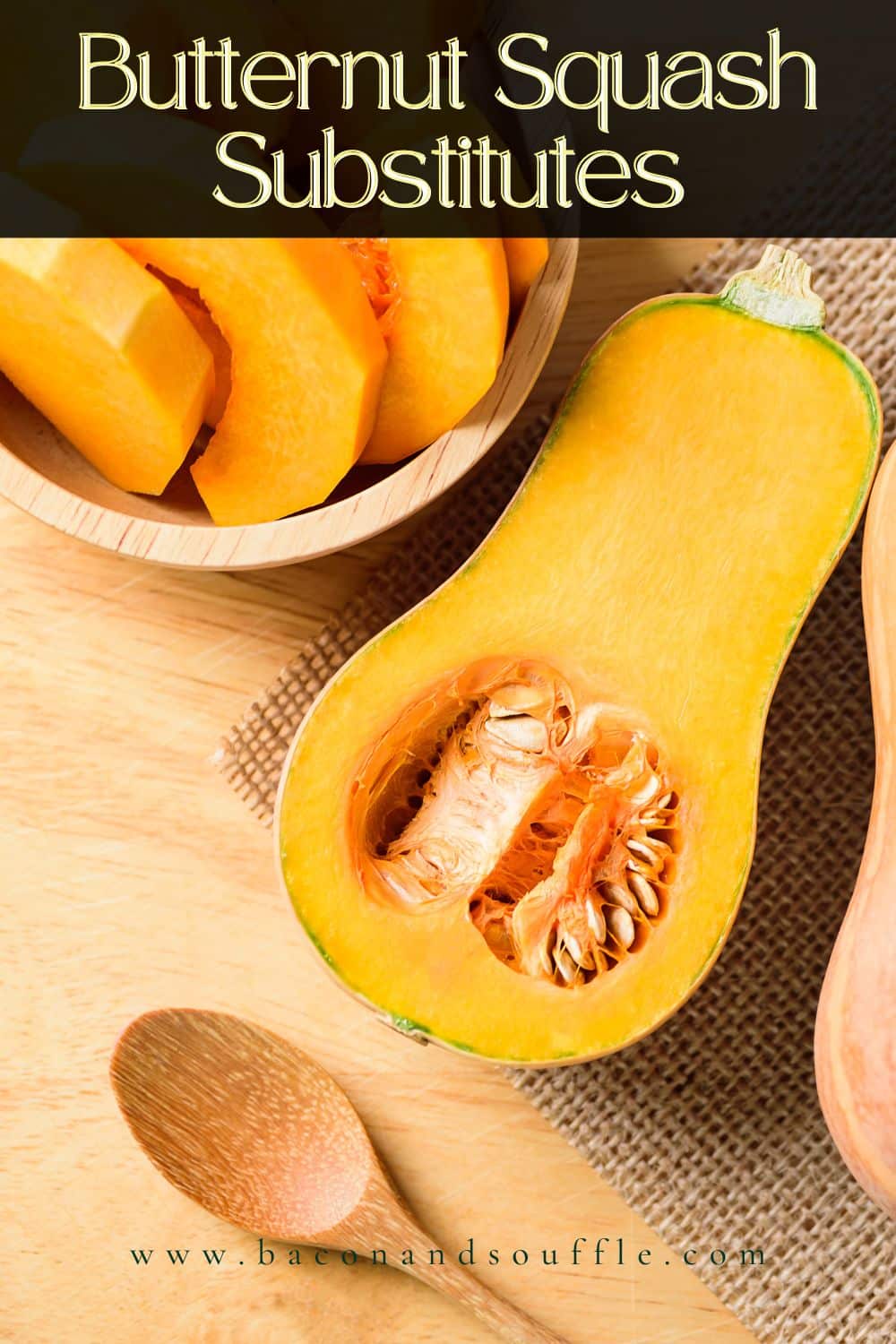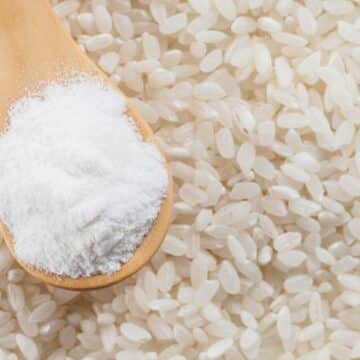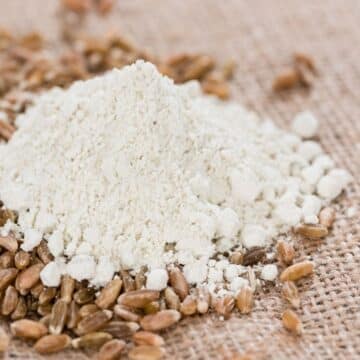With winter just around the corner, many are stocking up on butternut squash to prepare for all the delicious recipes that come with the colder weather. Butternut squash is a versatile vegetable that can be used in everything from soups to side dishes.
However, if you're running low on butternut squash or simply don't have time to go to the store, there are plenty of substitutions that will work just as well in your recipes.

Jump to:
7 Best Butternut Squash Substitutes
In this article, we'll take a look at 7 of the best butternut squash substitutes that you can use in your recipes this winter.
What Is Butternut Squash?
Butternut squash is a type of winter squash that is typically harvested in the fall. It has a long, narrow neck and a large, round bottom. The skin of the butternut squash is usually yellow or orange, and the flesh is a deep orange color.
Butternut squash is a popular ingredient in many winter recipes because it is very versatile. It can be used in soups, stews, casseroles, pies, and more.
Additionally, butternut squash can be roasted, baked, or pureed.
However, butternut squash is also a bit of a pain to prepare. It can be difficult to peel and cut, which is why many people choose to use substitutes. If you're one of those people, use these 7 best butternut squash substitutes in your recipes.
1. Sugar Pumpkin
Sugar pumpkins are a great butternut squash substitute. They are similar in size and shape to butternut squash, and they have similar orange flesh.
However, sugar pumpkins are a bit sweeter than butternut squash, so they may be a better option for recipes that call for added sweetness.
Sugar pumpkins can be roasted, baked, or pureed in the same way as butternut squash. They are also a popular ingredient in pies, and their high vitamin content makes them an excellent choice for soups and stews.
Overall, if you're looking for a good substitute for butternut squash, sugar pumpkin is a great option.
2. Acorn Squash
Acorn squash is a type of winter squash that is similar in appearance to butternut squash. It has smooth, dark green skin and creamy orange flesh.
Like butternut squash, acorn squash is high in fiber and vitamin A. It also has a sweet, nutty flavor that makes it a popular substitute for butternut squash.
Acorn squash is a great option if you're preparing a holiday side dish or soup. It can be roasted, mashed, or pureed and added to recipes in place of butternut squash. Plus, the edible skin and seeds of acorn squash make it a more nutrient-dense option than butternut squash.
3. Hubbard Squash
Hubbard squash is a large, green-skinned squash that is similar in appearance to butternut squash. It has creamy yellow flesh that is sweet and nutty.
Hubbard squash is typically harvested in the fall, making it a great seasonal substitute for butternut squash.
While Hubbard squash can be difficult to find, it can be used in any recipe that calls for butternut squash. It can be baked, roasted, or pureed into soups and sauces. The high vitamin A and C content make Hubbard squash a nutrient-rich option for holiday recipes.
4. Buttercup Squash
While buttercup squash is not as popular as other types of winter squash, it makes an excellent substitute for butternut squash. Buttercup squash is small and round, with dark green skin and bright orange flesh. It has a sweet, nutty flavor that is similar to butternut squash.
Like other types of winter squash, buttercup squash can be roasted, baked, or pureed. It is also a good choice for soups and stews. Plus, the small size of buttercup squash makes it a bit easier to prepare than other types of winter squash.
5. Delicata Squash
If you're looking for butternut squash substitutes because peeling and cutting the squash is too difficult, delicata squash is a great option. Delicata squash has a thin skin that can be eaten, so there's no need to peel it. Additionally, delicata squash is small and elongated, making it easier to cut than other types of winter squash.
The high fiber and potassium content in delicata squash help decrease the risk of heart disease and stroke. Additionally, squash is a good source of vitamins A, C, and B6.
Whether you're preparing a casserole or a soup, delicata squash is a great substitute for butternut squash. It can be roasted, baked, or pureed and added to recipes in place of butternut squash.
6. Sweet Potato
Sweet potato is undoubtedly one of the most widely available squash substitutes. Sweet potatoes are similar in color to butternut squash, and they have a sweet, nutty flavor. However, sweet potatoes are not technically squash; they are actually classified as tubers, which are thickened underground stems.
When substituting sweet potatoes for squash, you'll want to use about half as much since they're not as dense.
For example, if a recipe calls for one cup of butternut squash, you would use only half a cup of sweet potato. You can use sweet potatoes in any recipe that calls for butternut squash. They can be roasted, pureed, or even baked into pies and other desserts.
7. Pumpkin
Pumpkins are a staple of the fall season, but they can also be used as a squash substitute. Pumpkins are similar in color and flavor to butternut squash. They're also a good source of fiber, vitamins A and C, and beta-carotene.
The rich, sweet, and nutty flavor of pumpkin makes it a popular choice for baking. It can be used in pies, bread, and other desserts. Additionally, pureed pumpkin can be added to soups and sauces for a squash-like flavor.

Wrapping Up
Butternut squash is a versatile and delicious ingredient, but it's not always easy to find or prepare. If you're looking for butternut squash substitutes, consider using Hubbard squash, buttercup squash, delicata squash, sweet potato, or pumpkin.
All of these substitutes are easy to find and can be used in a variety of recipes.





Comments
No Comments